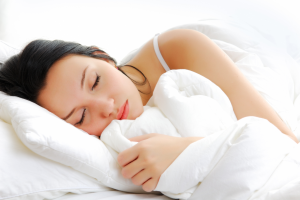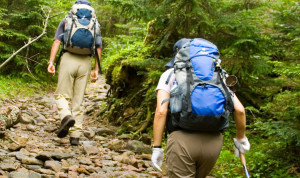Natural Remedies for Depression
You can’t watch TV these days without seeing advertisements for pharmaceutical treatments for depression. The current ads offer drugs to take in addition to the drugs you’re already taking that aren’t working. This would be funny if depression wasn’t widespread, incapacitating, and potentially fatal. It would be funnier still if these pharmaceuticals weren’t linked to an increased likelihood of suicidal or homicidal behavior. The Diagnostic and Statistical Manual IV, commonly known as the DSM IV is the diagnostic manual used by mental health professional to classify mental illness. (It is currently undergoing revision and will soon be released as the DSM V).
There are several classifications for depression: Adjustment Disorder with Depressed Mood, Dysthymic Disorder (which the DSM V seeks to reclassify as Chronic Depressive Disorder), Major Depressive Disorders, and Bipolar Disorders. The DSM V proposes the inclusion of Premenstrual Dysphoric Disorder. If you’ve been paying attention to big pharma ads, you know there is already a pill to treat Premenstrual Dysphoric Disorder, before it has been officially included as a diagnosis. There is no blood test, no microscopic evidence, no litmus test to diagnose depression. Diagnosis is based on subjective reporting and objective observation. Feelings of sadness, worthlessness or inappropriate guilt, sleep disturbances, appetite disturbance, and thoughts of death or suicide are pervasive and on-going.
It is interesting to note that opposing symptoms are included. Sleep disturbance can be either insomnia or excessive sleep. Appetite can be diminished or increased. Either psychomotor agitation or retardation can be present. Grieving (which may be diagnosed as an Adjustment Disorder with Depressed Mood) may include all of the symptoms of depression, but not the duration. Clinical Depression can be episodic or on-going. And Seasonal Affective Disorder is, of course, seasonal. If depressive symptoms are not due to grief, what is the cause? Conventional medical treatment targets brain chemistry. Once again, they are treating the symptom, not the cause.
The Foundation for any Natural Remedy for Depression
The brain is a body organ, and like everything else on the body, it’s health is dependent on gut health. As with any symptom of dysfunction or disease, health begins with proper nutrition, exercise, and detoxification. Eliminate all processed foods, refined sugar, sugar substitutes, corn syrup, artificial flavorings, colors, preservatives, MSG, hydrogenated oils, caffeine, alcohol, nicotine, drugs, and GMOs. Avoid allergens and soy. Eat a diet rich in fresh, raw, organic vegetables and fruits (more vegetables than fruit).
Related: How To Heal Your Gut
Get some vitamin D. Sunlight is the best source. But if you suffer from depression seasonally, you probably need light therapy or vitamin D supplementation as well. Also consider healthy fatty acids and B vitamins (a complex, not just one or two). Heavy metals, mold, fungi, and environmental toxins are common contributors to depression. Stop using any and all artificial fragrances, including (but is not limited to) cologne, perfume, soap, shampoo, candles, air fresheners, household cleaners, and detergents. Complete a full body detox or a Candida cleanse.
Exercise. Yes, we know it’s the last thing you want to do when you’re feeling lethargic due to depression. But studies have shown that exercise alone can be as effective as pharmaceuticals in treating depression. Which is better for you? Get good sleep. Get up in the morning and get outside into the early morning light. This is a great time for a walk. Early morning light will help set your internal clock if you suffer from insomnia. Forcing yourself out of bed is essential if you are sleeping round the clock. Now, the part that’s hard to face.
 Every chronic condition is to some extent a subconscious or conscious choice. We chose our lifestyle, our diet, our partners, our commitment to health. Anyone suffering from an ongoing illness owes it to themselves to ask the hard question: “What am I getting out of this? What does being depressed do for me?” Until we face the truth and discover what being ill gives us, it is nearly impossible to make the changes required to recover. When the illness we face is depression or anxiety, facing this truth is essential. No one beats depression unless they really want to. In today’s society, we tend to adopt a self-indulgent victim mentality. Too often we define ourselves by our losses or traumas. “I am a rape victim.” I am an incest survivor. I am a quadriplegic.” These labels and, too often, the support groups designed to help us, perpetuate the victim mentality. Psychotherapy is a wonderful tool designed to help you gain insight and develop new behaviors and thought processes. But therapy is limited by the skill of the clinician and the motivation of the client. Choose a therapist well, one who understands the mind-body connection. And do the work.
Every chronic condition is to some extent a subconscious or conscious choice. We chose our lifestyle, our diet, our partners, our commitment to health. Anyone suffering from an ongoing illness owes it to themselves to ask the hard question: “What am I getting out of this? What does being depressed do for me?” Until we face the truth and discover what being ill gives us, it is nearly impossible to make the changes required to recover. When the illness we face is depression or anxiety, facing this truth is essential. No one beats depression unless they really want to. In today’s society, we tend to adopt a self-indulgent victim mentality. Too often we define ourselves by our losses or traumas. “I am a rape victim.” I am an incest survivor. I am a quadriplegic.” These labels and, too often, the support groups designed to help us, perpetuate the victim mentality. Psychotherapy is a wonderful tool designed to help you gain insight and develop new behaviors and thought processes. But therapy is limited by the skill of the clinician and the motivation of the client. Choose a therapist well, one who understands the mind-body connection. And do the work.
Related: Running Without Knee Pain
Exercise: The Best Natural Remedy for Depression
There are so many choices. Each option has important benefits. All exercise decreases stress hormones and increases endorphins, which are natural chemicals in the body responsible for elevating one’s mood. Exercise also releases adrenaline, serotonin, and dopamine. All of these natural chemicals are essential to proper mental health. Here we’ll list our top four choices for fighting depression naturally. And we recommend, if possible, to exercise outdoors and in nature.  High-Intensity Interval Training (HIIT) is an excellent regimen. HIIT builds speed and power very quickly and is awesome for getting the body to release a lot of endorphins. It’s also a great choice for someone who is trying to find excuses for not working out, as it takes much less time than a good yoga session or a long run. Weight lifting helps increase testosterone. Low testosterone can cause depression for both men and women. Weight lifting can also show fast results in muscle tone and physical appearance, which can boost self-esteem, an issue for most anyone suffering from depression.
High-Intensity Interval Training (HIIT) is an excellent regimen. HIIT builds speed and power very quickly and is awesome for getting the body to release a lot of endorphins. It’s also a great choice for someone who is trying to find excuses for not working out, as it takes much less time than a good yoga session or a long run. Weight lifting helps increase testosterone. Low testosterone can cause depression for both men and women. Weight lifting can also show fast results in muscle tone and physical appearance, which can boost self-esteem, an issue for most anyone suffering from depression.
Yoga is an amazing exercise that rejuvenates, energizes, heals, and balances the body, mind, and spirit. Cardio is well known for its benefits, but making it a hobby for life has wonderful rewards. Bicycling, running, and swimming are a few of the easiest, least expensive, most rewarding hobbies there are (though obviously bicycling can get a bit more expensive, the more you get into it). Ever heard of a “runner’s high?” It’s an amazing feeling. It takes time to get into the kind of physical condition to reach the runner’s high, but it’s such an amazing, surreal, euphoric feeling. Words cannot do it justice.
Supplements For Depression
Herbs
Nutrition
- Vitamin D
- Vitamin B Complex
- N-Acetyl-L-Cysteine (NAC)
- S-adenosyl-L-methionine (SAMe)
- Magnesium
- Multiple Mineral Formula
- 5-hydroxytryptophan (5-HTP)
- DHEA
Aromatherapy for Natural Depression Remedies
Bergamot, peppermint, sandalwood, ylang-ylang, cedarwood, geranium, sage, jasmine, and lavender are known for helping to elevate mood.
Candida and Depression
If you are depressed while you suffer from regular yeast infections or athletes foot, or have taken antibiotics recently, there is a connection. Our brains are inextricably tied to our gastrointestinal tract and our mental well being is dependent on healthy intestines. Depression, bipolar disorder, anxiety, and a host of other mental illness from autism to ADHD can be caused by an imbalance of gut microbes like fungi, and “bad” bacteria. Read more at How Candida Leads to Depression.
Conclusion
If depression is affecting you, you need a plan of action. A “to do” list can help you get started. The time for contemplation is over. It’s time to act. Now. One step at a time. Kill the candida, and take B and D vitamins, first and foremost. Stay busy, stick with that to do list, and do everything you can to get yourself outside, connected to nature, with sunlight, exercising. The rest will usually take care of itself.
Recommended Supplements:
- B-Complex #6 – Thorne Research
- Vitamin D – Thorn Complex
- Krill Oil
- Shillintong’s Total Nutrition Formula
- Peppermint Essential Oil – Wise Woman Herbals
